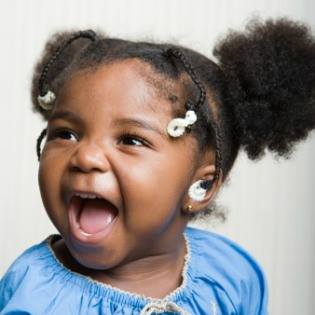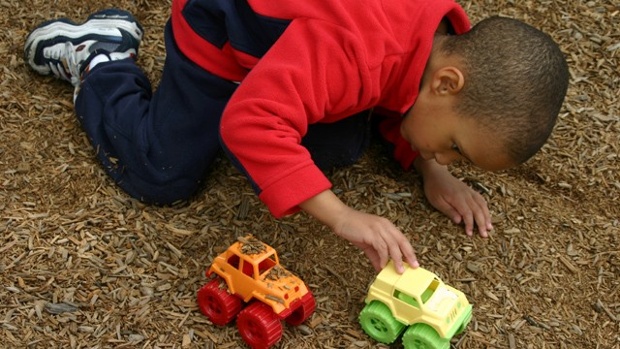
Immune Responses to Viruses Targeted as a Cause of Autism
March 6, 2017.
Catching the Early Warning Signs of Autism
I once met a beautiful bubbly baby girl with dark curly hair and big brown eyes- lets call her Esther. Esther’s parents were very happy with her progress because so far she was developing really fast. She said her babbled what seemed like "mama" at twelve months old and stood for the first time a month later. Esther was the perfect baby any parent could have asked for, not until a week after her third birthday when Esther had stopped talking. She was no longer interested in being around her parents, her older brother or even her nanny.
As a mother, noticing that something may be different about your baby can be quite worrisome. If you are naturally a mother that worries, and which mother isn’t anyways, your mind may jump to different, scary ideas. You would start asking questions like; “is something wrong with my baby? Soon, you hear the word "autism"..then you begin to worry even more- Could my precious bundle have autism? Is he/she developmentally delayed? Is this normal? Do I need to worry or should i wait and watch, perhaps my baby will snap out of it or mature from learning from class mates?” these could be extremely worrisome, especially for a first-time parent.

If you do what most people do, you will probably be tirelessly searching a lot of websites, blog posts and articles to see if they can help you find some answers, which may have led you to this post. However, the best thing to do is to consult with a professional, that is, a pediatrician or a therapist, someone who specializes in child development. If you haven’t done that yet, here is some general description of Autism Spectrum Disorder (ADS) and its early signs to help you determine whether or you need to consult with other professionals fast.

Autism spectrum disorder usually occurs during infancy and early childhood, causing delays in many basic areas of development, such as learning to talk, play, and interact with others. The signs and symptoms of autism vary widely, as do its effects. Some children with autism have only mild impairments, while others have more obstacles to overcome. However, every child with autism spectrum has problems, at least to some degree, in the following three areas:
• Communicating verbally and non-verbally
• Relating to others and the world around them
• Thinking and behaving flexibly
The following early signs may indicate your baby / toddler is at risk for an autism spectrum disorder. If your child exhibits any of the following, please don’t delay in asking your pediatrician or family doctor for an evaluation:
- Doesnt give big smiles or other warm, joyful expressions by six months or thereafter
- Does not enguage back and forth sharing of sounds, smiles or other facial expressions by nine months
- Does not babbling by 12 months
- Does not participate in back-and-forth gestures such as pointing, showing, reaching or waving by 12 months
- Lacks words by 16 months
- Does not communicate with meaningful, two-word phrases (not including imitating or repeating) by 24 months
- Has experienced some form of regression or loss in speech, babbling or social skills at any age
- Really does not notice or care if you hurt yourself or experience any discomfort
- Has a very weak response to cuddling or reaching out to get picked up
As children get older, there are diverse warning signs and symptoms, but they typically revolve around impaired social skills, speech and language difficulties, non-verbal communication difficulties, and inflexible behavior. Signs of social difficulties include when your child;
- Appears disinterested or unaware of other people or what’s going on around them
- Doesn’t know how to connect with others, play, or make friends
- Prefers not to be touched, held, or cuddled
- Doesn’t play "pretend" games, engage in group games, imitate others, or use toys in creative ways

Children that experience speech and language difficulties often show the following symptoms
- Speaks in an abnormal tone of voice, or with an odd rhythm or pitch (e.g. ends every sentence as if asking a question)
- Repeats the same words or phrases over and over, often without communicative intent a phenomena known as "echolalia"
- Responds to a question by repeating it, rather than answering it
- Uses language incorrectly (grammatical errors, wrong words) or refers to him or herself in the third person
- Has difficulty communicating needs or desires
- Doesn’t understand simple directions, statements, or questions
- Takes what is said too literally (misses undertones of humor, irony, and sarcasm)
- Avoids eye contact
- Uses facial expressions that don't match what he or she is saying
- Doesn’t pick up on other people’s facial expressions, tone of voice, and gestures
- Makes very few gestures (such as pointing). May come across as cold or “robot-like.”
- Reacts unusually to sights, smells, textures, and sounds. May be especially sensitive to loud noises. Can also be unresponsive to people entering/leaving, as well as efforts by others to attract the child’s attention.
- Abnormal posture, clumsiness, or eccentric ways of moving (e.g., walking exclusively on tiptoe)
Children with autism spectrum disorder have trouble picking up on subtle nonverbal cues and using body language. This makes the "give-and-take" of social interaction very difficult many of these children also show signs of inflexibility. These may include:
- Follows a rigid routine (e.g., insists on taking a specific route to school)
- Has difficulty adapting to any changes in schedule or environment (e.g., throws a tantrum if the furniture is rearranged or bedtime is at a different time than usual)
- Unusual attachments to toys or strange objects such as keys, light switches, or rubber bands.
- Obsessively lines things up or arranges them in a certain order.
- Preoccupation with a narrow topic of interest, often involving numbers or symbols (e.g., memorizing and reciting facts about maps, train schedules, or sports statistics)
- Spends long periods watching moving objects such as a ceiling fan, or focusing on one specific part of an object such as the wheels of a toy car
- Repeats the same actions or movements over and over again, such as flapping hands, rocking, or twirling (known as self-stimulatory behavior).
Some researchers and clinicians believe that these behaviors may soothe children with autism more than stimulate them, hence the term "sensory seeking behaviors". Children with autism spectrum disorder are often restricted, inflexible, and even obsessive in their behaviors, activities, and interests. As a parent, you’re in the best position to spot the earliest warning signs of autism. You know your child better than anyone and observe behaviors and quirks that a pediatrician, in a quick fifteen-minute visit, might not have the chance to see. Your child’s pediatrician can be a valuable partner, but don’t discount the importance of your own observations and experience as well. The key is to educate yourself so you know what’s normal and what’s not.
Here are a few suggestions for toddler mums: Monitor your child’s development. keeping a close eye on when—or if—your child is hitting the key social, emotional, and cognitive milestones is an effective way to spot the problem early on. be quick to take action if you’re concerned. Every child develops at a different pace, so you don’t need to panic if your child is a little late to talk or walk. But if your child is not meeting the milestones for his or her age, or you suspect a problem, share your concerns with your child’s doctor immediately, who would referr you to other specialists. Don’t wait!
On a final note, don’t accept a wait-and-see approach. Many concerned parents are told, “Don’t worry” or “Wait and see.” But waiting is the worst thing you can do. You risk losing valuable time at an age where your child has the best chance for improvement. A very key advise is to trust your instincts, listen to your gut feelings, if it’s telling you something is wrong, and be persistent. Schedule a follow-up appointment with the doctor, seek a second opinion, or ask for a referral to a child development specialist. Helping Hands Center may be a good place to start!

